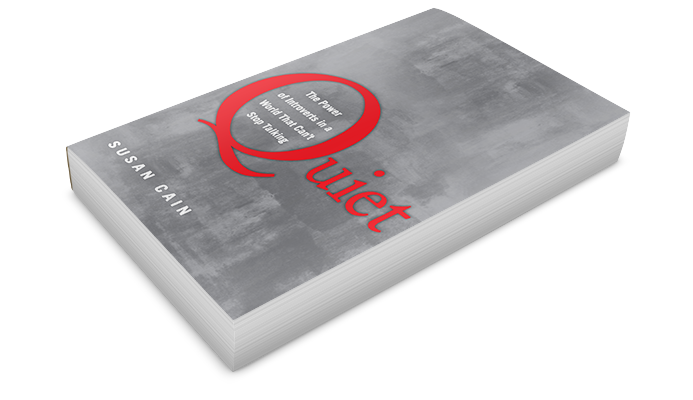
Quiet is a book for the soft-spoken, the listeners, the withdrawn, and the thinkers. There are many more attributes that could be singled out, and these listed may not apply to every introvert across the board, but Quiet is a book about introverts, introversion, and the rise of the Extrovert Ideal. According to Cain's extensive research, included in detail in this narrative, we live in an extroverted culture. Our schools, workplaces, and media all perpetuate and praise the power in and desire for extroverted students, leaders, and characters. And while extroversion is indeed a powerful, beautiful characteristic, the undervalue of introverts continues to grow deeper.
Susan Cain takes it upon herself to highlight and lift up the overlooked: the ones "who prefer listening to speaking; who innovate and create but dislike self-promotion; who favor working on their own over working in teams". These are people like Rosa Parks, Chopin, Dr. Seuss, Steve Wozniak - at least one-third of the world's population consists of introverts. As such, this book is a book by an introvert, for introverts, but it is as much for the introverts as it is for the extroverts who need to understand them. They need to understand each other, in order for the structures of culture and social life to work together in uplifting and healthy ways.
--Elise T--
For more information on Quiet by Susan Cain, visit our website here.
Quotes taken from back flap of Quiet copyright 2013 by Random House, Inc. ISBN 9780307352156




